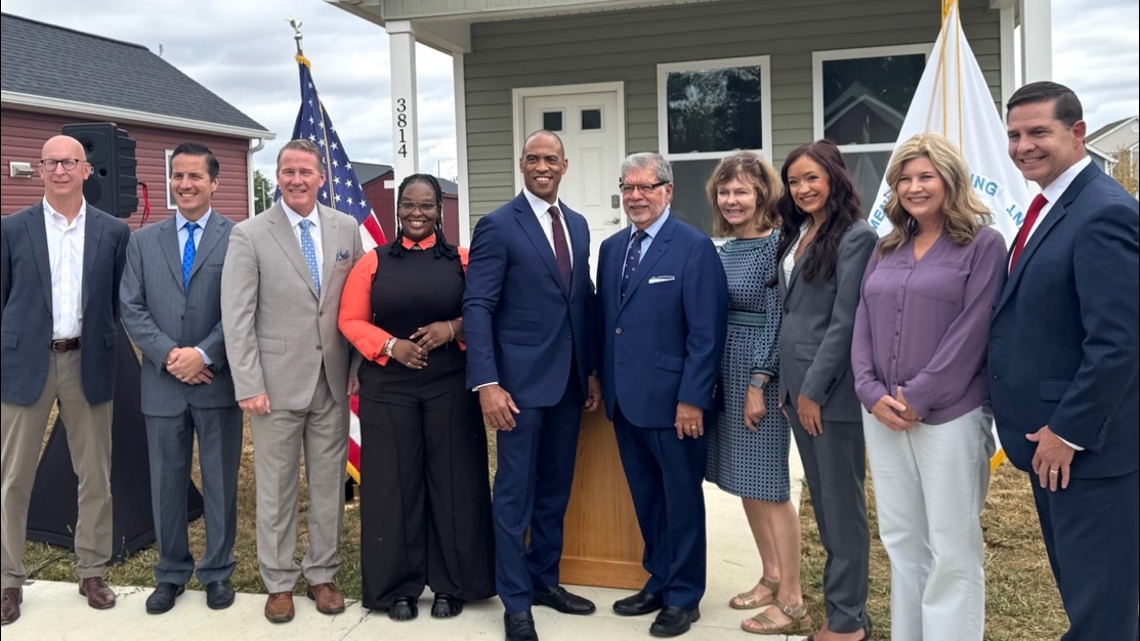Secretary of Housing and Urban Development (HUD) Scott Turner joined the senators in Columbus for a roundtable with opportunity zone leaders, according to a release.
COLUMBUS, Ohio — Several government officials, including U.S. Sens. Jon Husted and Bernie Moreno, gathered Friday to discuss affordable housing developments in Columbus.
Secretary of Housing and Urban Development (HUD) Scott Turner joined the senators in Columbus for a roundtable with opportunity zone leaders, according to a release from Husted’s office.
“Columbus is doing thoughtful work to expand affordable housing in our communities, and I got to see that firsthand today,” Husted said. “Ohio communities need innovative solutions to lower housing costs and build stronger neighborhoods.”
The officials toured Vista Village, Columbus’ first transitional housing community made up of tiny homes. Residents experiencing or at risk of homelessness can stay for up to two years while working toward self-sufficiency and stability, according to the community’s website.
Phase I of the gated community features 41 tiny homes, a 4,000-square-foot community center, community garden, park and green space.

They also toured Connect Housing Blocks’ 630,000-square-foot facility, where the initiative produces apartment units from start to finish. The company claims to be one of the world’s largest modular apartment manufacturing facilities.
“This is a real story of what you can do. You can repurpose a building. You create jobs. You are a great solution to the affordable housing crisis that we face in our country,” Turner said during the tour.
HUD announced Friday that Connect Housing Blocks will be an exhibitor for the Innovative Housing Showcase at the National Mall next month.
The officials then visited the Trolley District opportunity zone to tour the facilities.
“The Trolley District was once an abandoned trolley service center. Thanks to the innovation that opportunity zones have afforded this community, it now hosts a food market, work spaces and apartments,” Husted said.
Officials and opportunity zone leaders discussed how budget law will strengthen Ohio communities by creating jobs and growth in low-income communities, the release says.
“I’m proud that the budget law has made these tax incentives—and the success they bring to Ohio communities—permanent. Talking with opportunity zone leaders about how they are driving affordable housing solutions in Columbus underscores that their model could spark success and stability in other parts of Ohio as well,” Husted said.
Congress created opportunity zones as part of the Tax Cuts and Jobs Act of 2017. Opportunity zones drive private sector investment to low-income areas through tax deferrals, reductions and sometimes the elimination of capital gains tax liabilities, according to the release.
The budget law made opportunity zones permanent, which affects about 956,000 Ohioans and 54,000 Ohio businesses.

